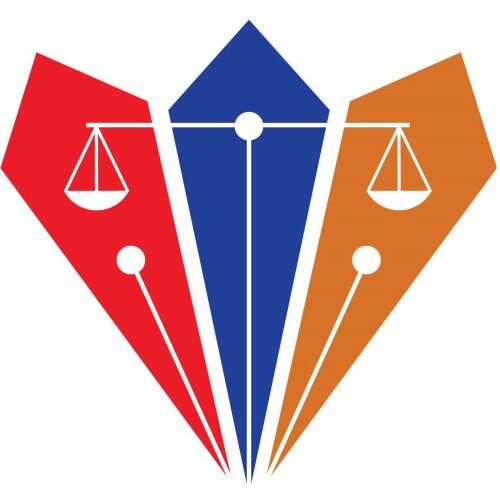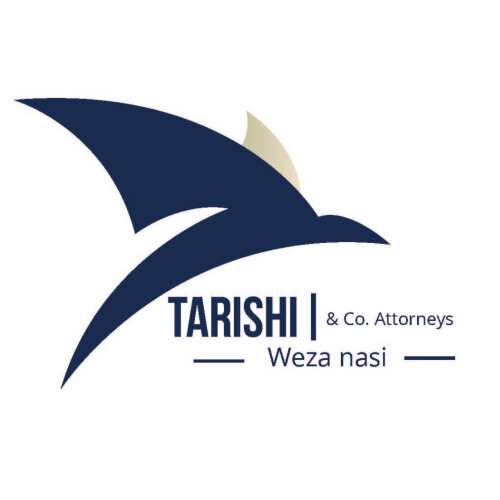Best Energy Regulatory Law Lawyers in Dar es Salaam
Share your needs with us, get contacted by law firms.
Free. Takes 2 min.
List of the best lawyers in Dar es Salaam, Tanzania
About Energy Regulatory Law in Dar es Salaam, Tanzania
Energy Regulatory Law in Dar es Salaam, Tanzania encompasses the legal and regulatory frameworks that govern the generation, transmission, distribution, and sale of energy, including electricity, petroleum, and natural gas. The primary aim of these laws is to ensure a reliable, safe, and affordable supply of energy, while protecting the interests of consumers, investors, and the environment. The Energy and Water Utilities Regulatory Authority (EWURA) is the chief regulatory body in this domain. As Tanzania's economic hub, Dar es Salaam plays a critical role in the country's energy sector, housing major power stations, distribution networks, and corporate headquarters for key energy providers.
Why You May Need a Lawyer
Navigating Energy Regulatory Law in Dar es Salaam can be complex due to rapidly evolving regulations and the technical nature of the sector. You may need a lawyer for several reasons, including but not limited to:
- Assisting with licensing and permit applications for energy projects
- Interpreting regulatory requirements and compliance obligations
- Negotiating and drafting power purchase agreements or other commercial contracts
- Representation in disputes with regulatory authorities, energy suppliers, or consumers
- Advising on environmental standards and impact assessments for energy projects
- Guidance on tariffs, market entry, and investment in the Tanzanian energy sector
- Dealing with land acquisition and compensation issues relating to energy infrastructure
Local Laws Overview
The energy sector in Dar es Salaam is primarily regulated by several key legal instruments:
- Electricity Act, 2008 - outlines the framework for generation, transmission, distribution, and supply of electricity, along with licensing and operational requirements.
- Petroleum Act, 2015 - governs the exploration, extraction, transportation, and marketing of petroleum and natural gas.
- EWURA Act, 2001 - establishes the Energy and Water Utilities Regulatory Authority and empowers it to oversee licensing, tariff regulation, consumer protection, and dispute resolution in the energy sector.
- Environmental Management Act, 2004 - imposes obligations on energy project developers to conduct environmental impact assessments and comply with sustainability standards.
- Renewable Energy Policies - Tanzania has implemented policies to encourage investment in renewable energy, including solar, wind, and hydropower, with specialized incentives and regulatory provisions.
All energy sector participants in Dar es Salaam must comply with these legal frameworks, as well as any regulations and guidelines issued by EWURA. Non-compliance can lead to penalties, cancellation of licenses, or legal disputes.
Frequently Asked Questions
What is the role of EWURA in Tanzania?
EWURA serves as the primary regulator for electricity, petroleum, natural gas, and water utilities. It issues licenses, sets tariffs, enforces quality and safety standards, and resolves disputes in the energy sector.
How can an energy company obtain a license to operate in Dar es Salaam?
Companies must apply to EWURA and meet specific technical, financial, and operational requirements, provide necessary documentation, undergo inspections, and pay relevant fees before a license is granted.
What are the penalties for operating without the required energy licenses?
Operating without a license may result in heavy fines, shutdown orders, seizure of equipment, or potential criminal prosecution.
Do individuals have a role in reporting regulatory non-compliance in the energy sector?
Yes, consumers and the general public can report suspected unlawful activities or violations of regulatory requirements to EWURA or relevant governmental agencies for investigation.
Are foreign investors allowed to participate in energy projects in Dar es Salaam?
Yes, foreign entities can invest in Tanzania's energy sector, but they must comply with local laws, obtain appropriate permits, and sometimes form partnerships with local entities depending on the subsector.
What legal protections exist for consumers in the energy sector?
Consumers are protected under EWURA regulations, which set standards for service quality, transparency in tariffs, and provide avenues for complaints and dispute resolution.
How are energy tariffs determined in Dar es Salaam?
Tariffs are established by EWURA based on cost-of-service analysis, stakeholder consultations, and economic considerations to balance the interests of utilities and consumers.
What is involved in an Environmental Impact Assessment for an energy project?
Developers must assess potential environmental impacts, propose mitigation measures, consult with stakeholders, and obtain approval from the National Environment Management Council before project commencement.
Can decisions by EWURA be appealed?
Yes, parties aggrieved by EWURA's decisions can appeal to the Fair Competition Tribunal or seek judicial review in the High Court of Tanzania.
What are the legal requirements for renewable energy projects?
Renewable energy projects must comply with sector-specific regulations on licensing, safety, grid integration, and environmental protection. Incentives may be available for qualifying projects.
Additional Resources
For further information or assistance, you may contact or consult the following:
- Energy and Water Utilities Regulatory Authority (EWURA) - regulatory guidance, licensing, and consumer protection information
- Ministry of Energy - policy direction and sector development programs
- National Environment Management Council (NEMC) - environmental assessment requirements for energy projects
- Fair Competition Tribunal - for appealing EWURA decisions
- Tanzania Electric Supply Company (TANESCO) - information on electricity supply and grid connection
- Attorney General’s Chambers - for legal opinions and official gazettes
- Private law firms in Dar es Salaam specializing in energy law
- Industry chambers and professional associations for networking and updates
Next Steps
If you require legal assistance in Energy Regulatory Law in Dar es Salaam, Tanzania, consider the following steps:
- Clearly identify your legal issue or query related to the energy sector
- Gather all relevant documents, permits, and correspondence
- Reach out to a lawyer or law firm experienced in energy regulatory matters
- Consult EWURA or the Ministry of Energy for official regulations or application procedures
- If facing a dispute or regulatory penalty, seek early legal advice to determine your rights and build an effective response
- Stay informed about statutory and regulatory updates affecting your area of concern
Having professional legal guidance ensures compliance, protects your interests, and helps you navigate the complex regulatory landscape of the energy sector in Dar es Salaam.
Lawzana helps you find the best lawyers and law firms in Dar es Salaam through a curated and pre-screened list of qualified legal professionals. Our platform offers rankings and detailed profiles of attorneys and law firms, allowing you to compare based on practice areas, including Energy Regulatory Law, experience, and client feedback.
Each profile includes a description of the firm's areas of practice, client reviews, team members and partners, year of establishment, spoken languages, office locations, contact information, social media presence, and any published articles or resources. Most firms on our platform speak English and are experienced in both local and international legal matters.
Get a quote from top-rated law firms in Dar es Salaam, Tanzania — quickly, securely, and without unnecessary hassle.
Disclaimer:
The information provided on this page is for general informational purposes only and does not constitute legal advice. While we strive to ensure the accuracy and relevance of the content, legal information may change over time, and interpretations of the law can vary. You should always consult with a qualified legal professional for advice specific to your situation.
We disclaim all liability for actions taken or not taken based on the content of this page. If you believe any information is incorrect or outdated, please contact us, and we will review and update it where appropriate.













